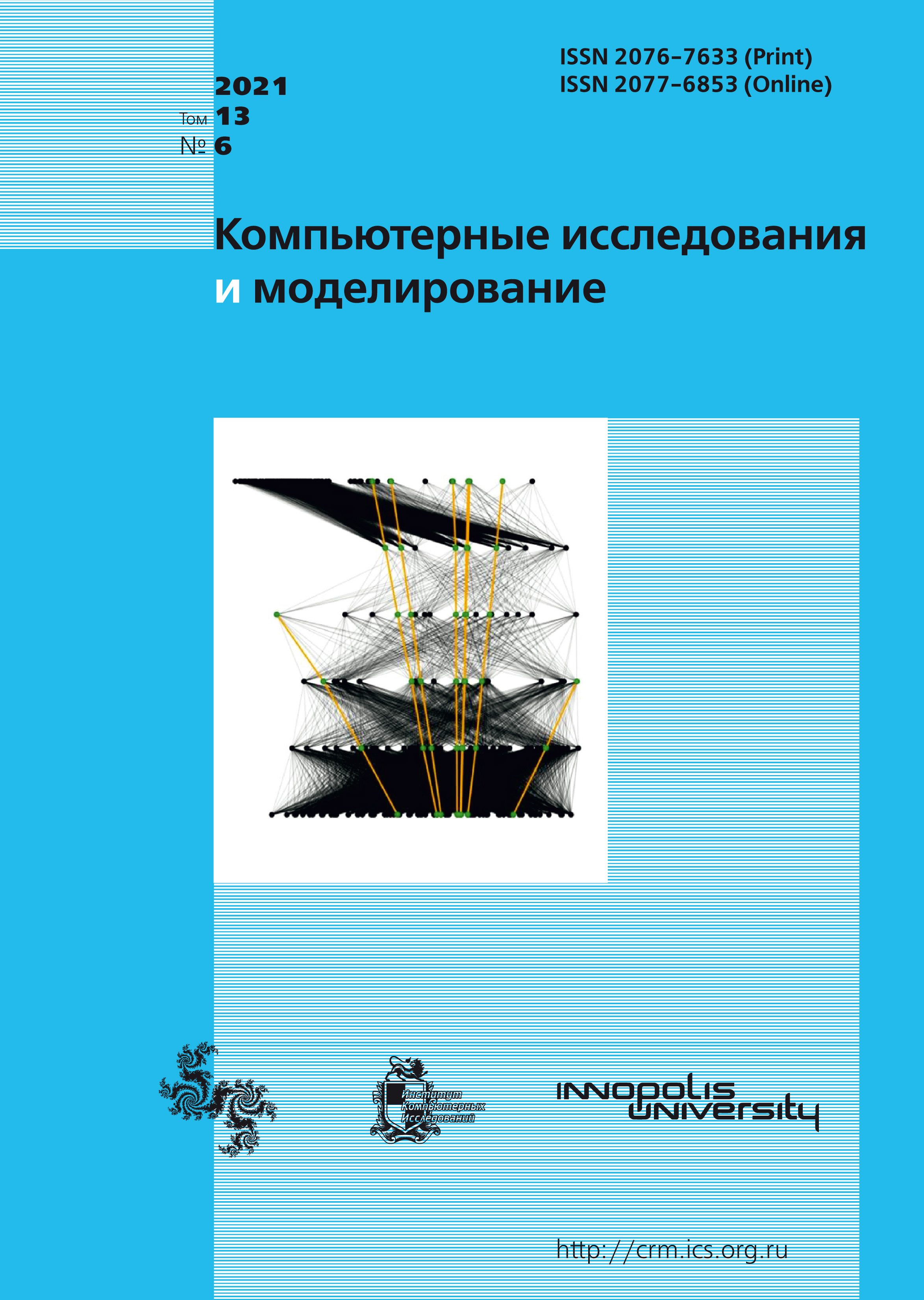All issues
- 2024 Vol. 16
- Issue 1 (special issue)
- 2023 Vol. 15
- 2022 Vol. 14
- 2021 Vol. 13
- 2020 Vol. 12
- 2019 Vol. 11
- 2018 Vol. 10
- 2017 Vol. 9
- 2016 Vol. 8
- 2015 Vol. 7
- 2014 Vol. 6
- 2013 Vol. 5
- 2012 Vol. 4
- 2011 Vol. 3
- 2010 Vol. 2
- 2009 Vol. 1
Assessment of the elite–people interaction in post-soviet countries using the Bayesian approach
 pdf (390K)
pdf (390K)
A previously developed model that describes the dynamics of social tension in a society divided into two groups: the elite and the people was considered. This model took into account the impact of economic situation changes and the elite–people interaction. The model has been modified by including in the equation describing the tension of the people, a term that takes into account the adaptation of the people to the current situation.
The model coefficients estimation is an important task, the solution of which allows obtaining information about the nature of the interaction between elite and people. We believe that the solution of the system of model equations with optimal coefficients is closest to the values of the indicator characterizing social tension. We used the normalized level of homicide rate as an indicator of social tension.
The model contains seven coefficients. Two coefficients characterizing the influence of economic situation changes on elite and people are taken equal to each other and the same for all countries. We obtained their estimations using a simplified model that takes into account only the change in the economic situation and allows an analytical solution.
The Bayesian approach was used to estimate the remaining five coefficients of model for post-Soviet countries. The prior probability densities of the four coefficients for all countries under consideration were taken to be the same. The prior probability density of fifth coefficient was considered to depend on the regime of government (authoritarian or «transitional»). We assumed that the calculated tension matches with the corresponding indicator of tension in cases where the difference between them does not exceed 5%.
The calculations showed that for the post-Soviet countries, a good coincidence was obtained between the calculated values of the people tension and the normalized level of homicide rate. The coincidence is satisfactory only on average.
The following main results was obtained at the work: under the influence of some «significant» events in 40% of post-Soviet countries, there was a rapid change in the nature of interaction between the elite and the people; regional feature have some influence on the elite–people interaction; the type of government does not significantly affect the elite–people interaction; the method for assessing the stability of the country by the value of the model coefficients is proposed.
Indexed in Scopus
Full-text version of the journal is also available on the web site of the scientific electronic library eLIBRARY.RU
The journal is included in the Russian Science Citation Index
The journal is included in the RSCI
International Interdisciplinary Conference "Mathematics. Computing. Education"






